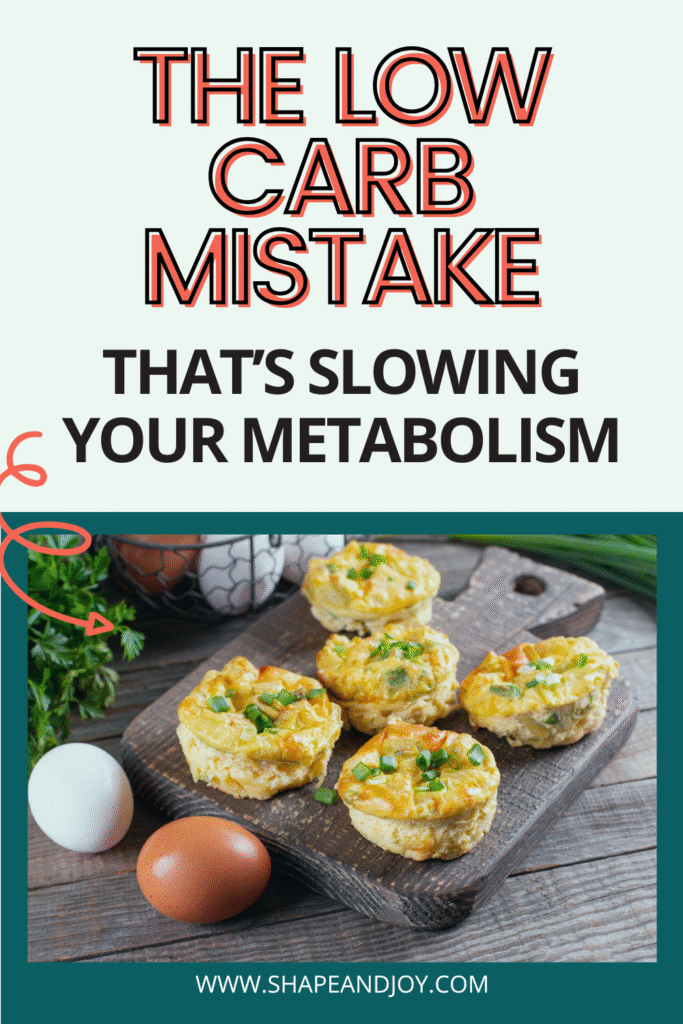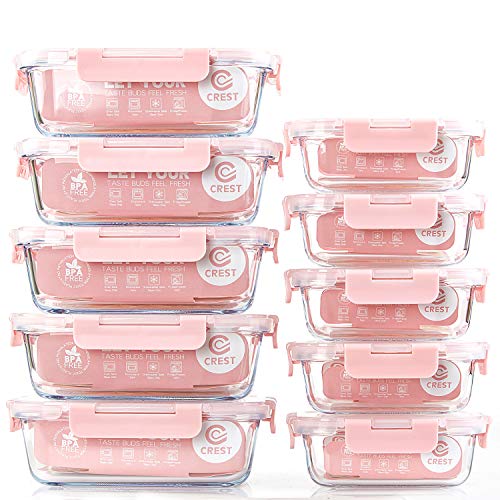This post may contain affiliate links, which means that I may earn a commission if you click on the link, with no cost for you. It’s one of the ways I support my blog. You can read more about this here.
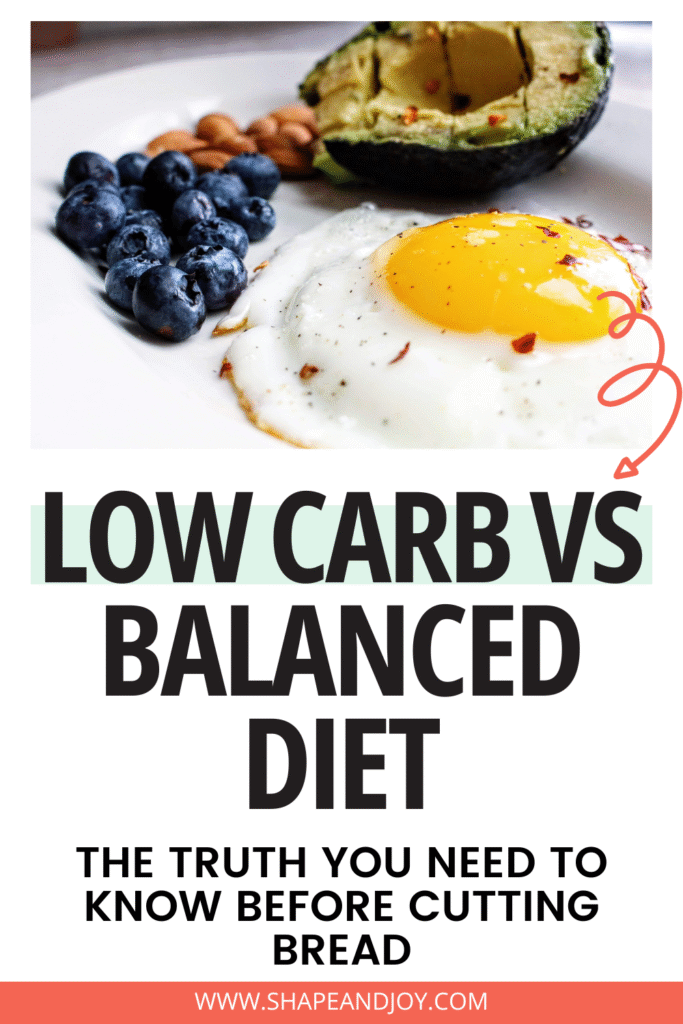
Let’s be real: the moment you even think about carbs, you can probably hear the internet shouting at you. “Bread is bad!”, “Pasta spikes insulin!”, “Carbs make you store fat!”. And so begins the weekly ritual… It’s Monday: you’ve gone full low carb, feeling like a clean-eating queen.
By Wednesday you’re Googling ‘How many carbs are in broccoli?’ while staring at your partner’s garlic bread with resentment.
Friday hits, you cave, you eat the carbs, and suddenly you’re convinced you’ve undone a week of effort and might as well order a side of guilt with your pizza.
Sound familiar? It’s not just you. I’ve been there too, swearing off carbs like they were toxic waste, only to end up face-first in a bowl of cereal three days later wondering if I’d just destroyed my metabolism.
Here’s the truth most “low carb or die” diets don’t want you to hear:
Carbs are not the enemy. Confusion is.
This post is your no-nonsense, fluff-free breakdown of what carbs actually do in your body, when low carb can work, when it totally backfires, and how to finally eat carbs without derailing your fat loss goals, gut health, energy, or sanity.
Grab your cuppa, this is the carb chat that changes everything.
Are Carbs Really the Reason You’re Not Losing Weight?
It’s tempting to think that cutting carbs is the golden ticket to fat loss. After all, every “before and after” story seems to start with, “I cut carbs and lost 10 pounds.” But here’s the part they forget to mention: most of that early weight drop isn’t fat, it’s water.
When you eat carbs, your body stores some of them as glycogen in your muscles and liver. Glycogen holds water. So when you go low carb, you lose that water, quickly.
You look leaner, the scale moves, and you think, “Wow! Carbs really were the problem!”
Except… over the next few weeks, the fat loss slows down. Hunger creeps in. You start craving everything. Your energy dips. Your mood tanks. Eventually, you eat carbs again, and the water weight returns.
Suddenly you’re convinced you’ve “gained it all back,” when really, your body is just rehydrating.
Carbs didn’t make you gain fat. Rebound dieting did.
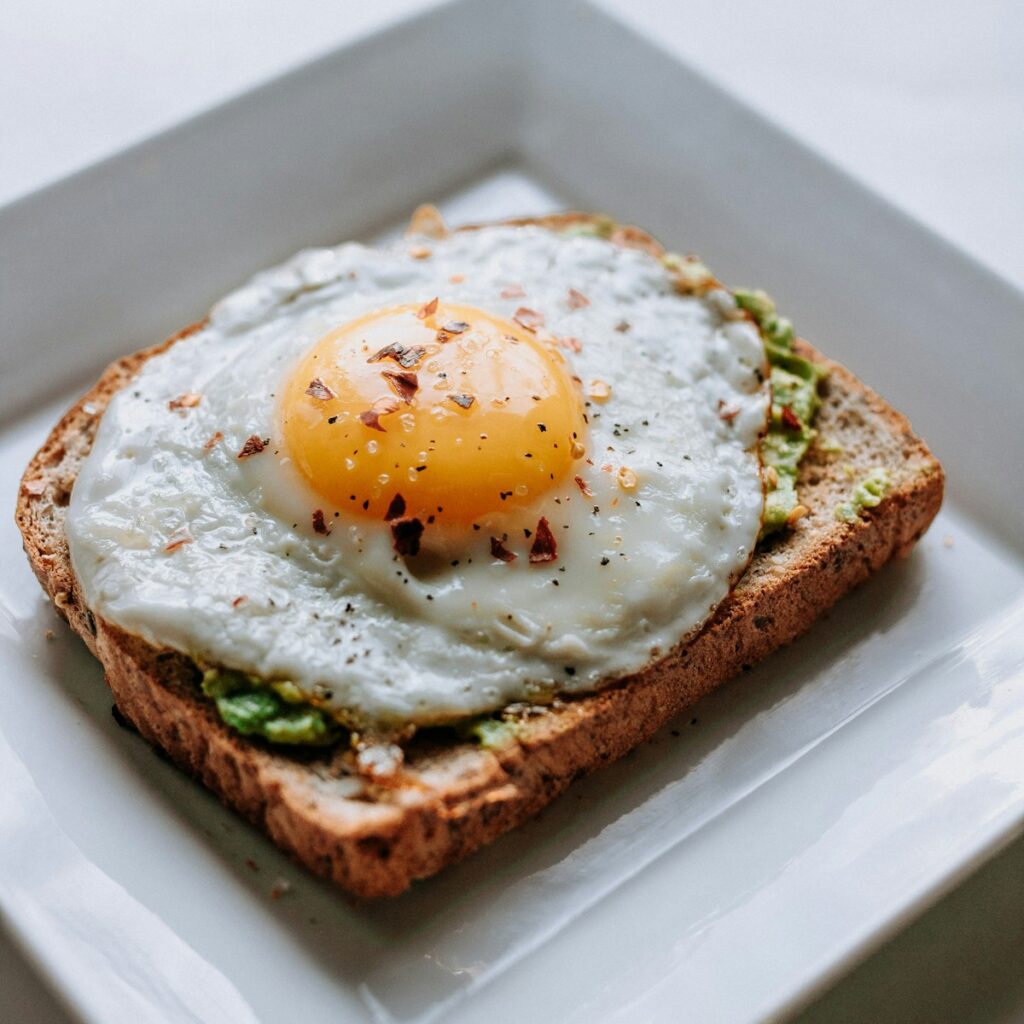
Myth vs Reality: Why Going Low Carb Isn’t a Magic Fat Loss Switch
Yes, low carb diets can be effective for fat loss in some people, some of the time. But here’s what’s really going on:
- Cutting carbs reduces overall calories because you’re removing a HUGE category of food.
- It naturally eliminates most processed junk (biscuits, muffins, crisps).
- It lowers water retention, which shows immediate results.
But, and this is the kicker, it doesn’t make your body magically burn fat faster than any other diet that lowers calories and improves food quality.
Worse still? Going too low carb may cause:
- Increased cortisol (stress hormone)
- Disrupted thyroid function (metabolism regulator)
- Reduced serotonin (your mood-balancing neurotransmitter)
- Lower leptin (your hunger control hormone)
Which means… your fat loss can actually stall, and your cravings go through the roof.
That’s not your lack of willpower, it’s your biology rebelling.
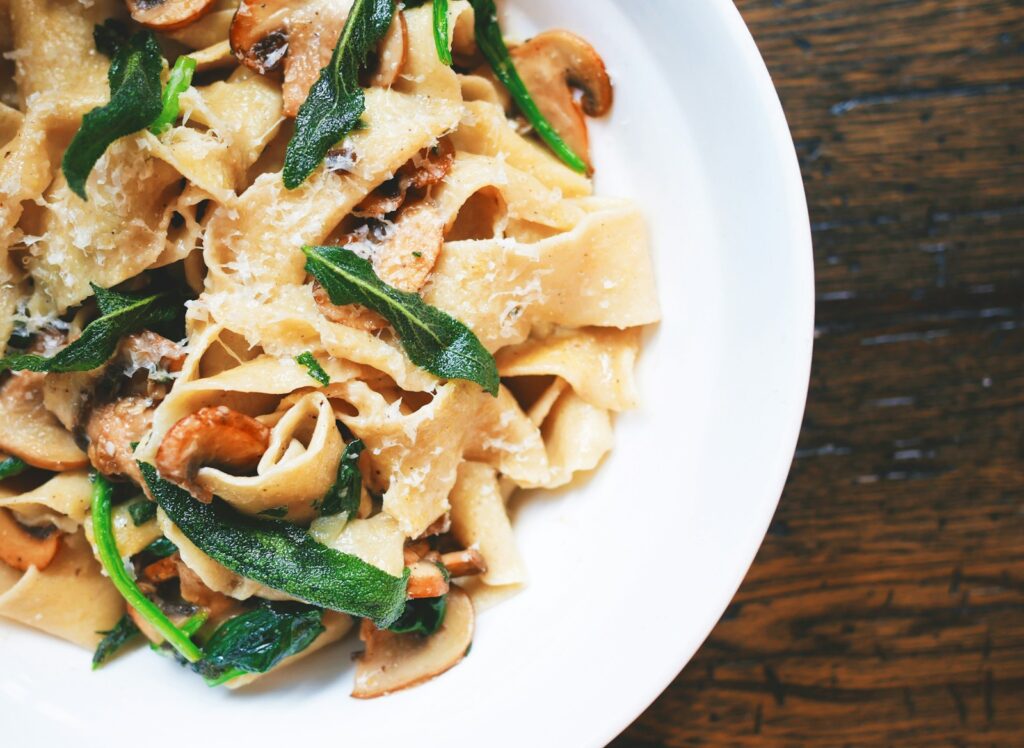
The Real Reason Carbs Might Be Stalling Your Progress
Carbs themselves aren’t usually the problem, it’s the type and the quantity.
Let’s be honest: nobody ever binged on too many chickpeas or quinoa. It’s the ultra-processed, low-fibre, high-sugar carbs that hit us hard:
- Biscuits
- Cake
- Pasta with garlic bread, cheese, and a glass of wine
- Crisps (the entire multipack because who just has one?)
These foods spike blood sugar quickly, trigger cravings, encourage overeating, and leave you hungrier soon after, which is a disaster if your goal is fat loss, improved digestion, or healthy weight maintenance.
But wholefood carbs? They’re an entirely different story.
Flat belly foods like oats, lentils, sweet potatoes, vegetables, and fruit are not the carbs causing chaos. They’re the ones helping you burn fat, balance hormones, improve digestion, and reduce belly bloating naturally.
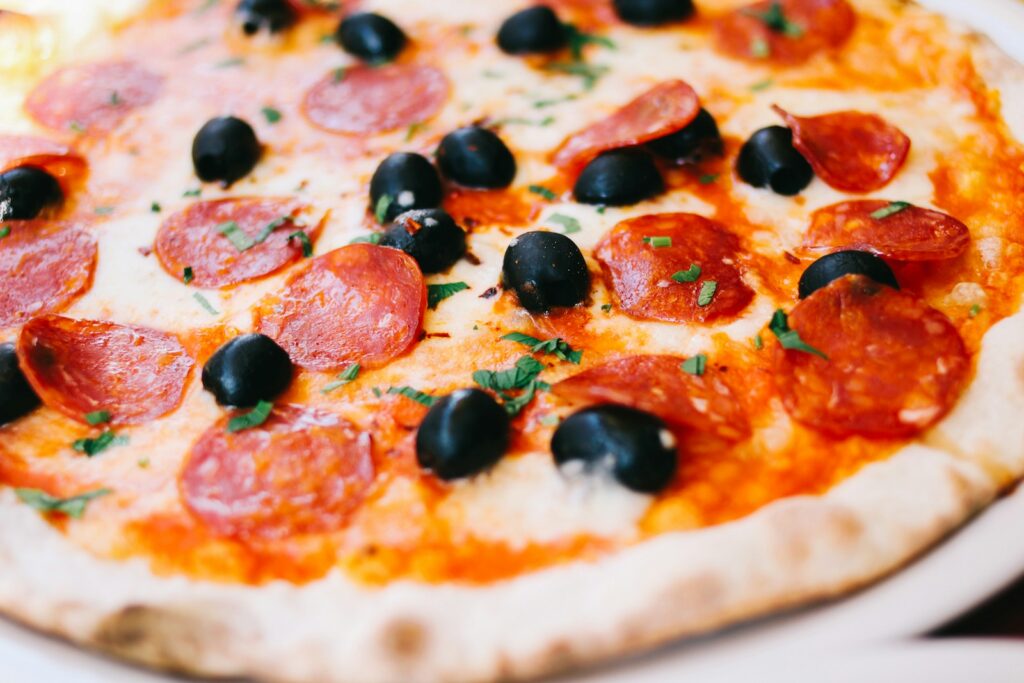
When Going Low Carb Actually Helps
Let’s be fair: low carb is not the villain, in fact, it can be a useful tool in the right context.
Low carb diets can be beneficial if:
- You have insulin resistance or PCOS
- You struggle with blood sugar crashes or cravings
- You feel out of control around carb-heavy foods
- You’re starting a structured fat loss phase and want quick appetite control
Reducing carbs can improve hunger regulation, stabilise energy, and encourage the body to use stored fat for fuel.
But there’s a difference between low carb and “I’m never eating bread again.” The latter leads to hormonal chaos, burnout, and the inevitable binge.
Go too low for too long and you risk:
- Sluggish metabolism
- Higher cortisol (hello stubborn belly fat)
- Poor sleep
- Low mood and anxiety
- Plateaued fat loss
So if your low carb plan leaves you exhausted, moody, or fantasising about croissants, your body is sending you a very clear message: We need balance, not restriction.
📌 Pin this for later! ⬇
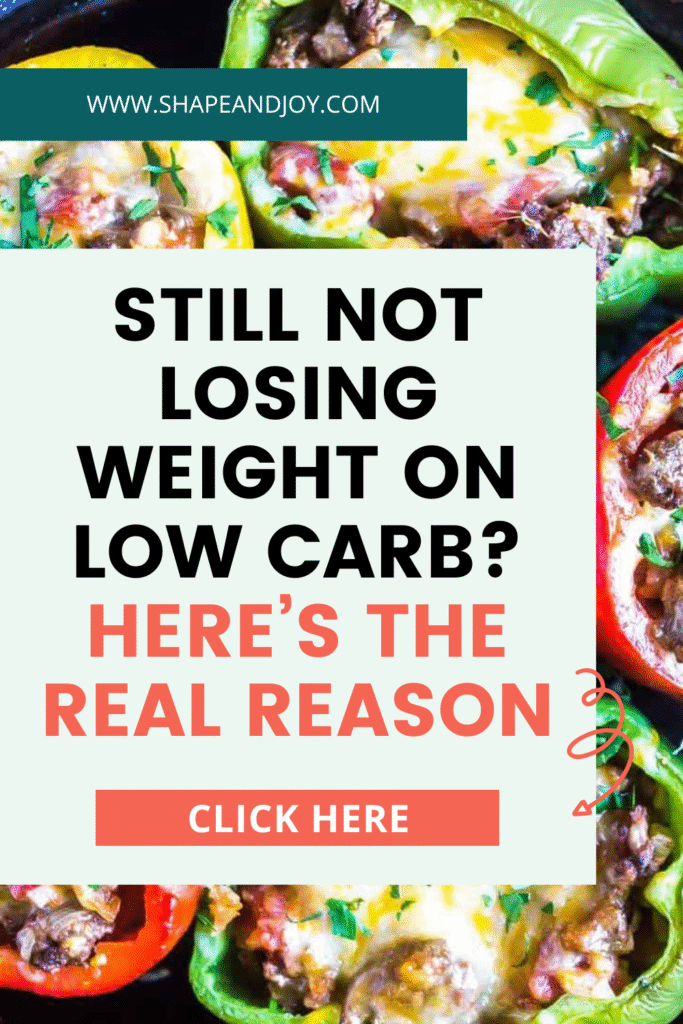
When Carbs Actually HELP You Lose Fat
Yep. You read that right. Carbs can help with fat burning, when you use them properly.
Carbs:
- Support thyroid function, which drives metabolism
- Lower cortisol at night, helping you sleep deeper (better sleep = more fat loss)
- Boost serotonin, reducing emotional eating
- Fuel workouts, helping you burn more calories and build lean muscle (which naturally increases your metabolic rate)
So while low carb diets may trim water weight and reduce inflammation short-term, strategically including carbs may actually help you burn fat more efficiently long-term.
This is where a balanced diet shines. You’re not at war with food, you’re working with your body to support fat burning, gut health, and hormonal balance.
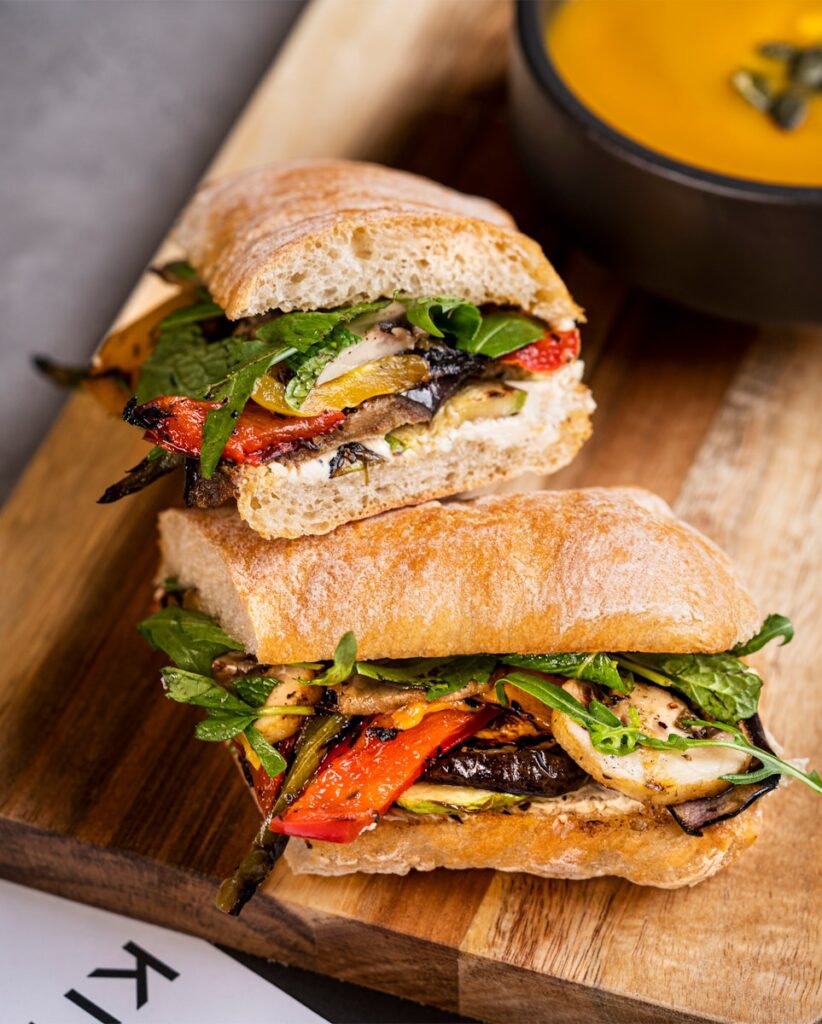
How to Eat Carbs Without Gaining Weight
Forget fear-based dieting. Here’s how to make carbs work for you:
1. Choose whole carbs over processed carbs
Whole carbs are packed with fibre, vitamins, and minerals, keeping hunger low and metabolism high. Think:
- Oats
- Sweet potatoes
- Brown rice
- Quinoa
- Beans and lentils
- Vegetables and fruit
2. Pair carbs with protein and healthy fats
This slows digestion, stabilises blood sugar, and keeps you satisfied for hours. No crashes. No cravings.
This is exactly what you’d find in healthy recipes focused on fat burning foods.
Small swaps make the biggest difference. I cook with extra virgin olive oil and avocado oil sprays because they support hormone health and fat burning, and honestly, they just make everything taste bougie
3. Time carbs around when your body uses them best
- Morning: To normalise hunger hormones and fuel your brain.
- After workouts: Your muscles act like a sponge, soaking up carbs without storing them as fat.
- Evening meal: A moderate carb meal at night can improve serotonin and help you sleep, a key factor in fat loss.
Want to make balanced eating stupidly easy? A good meal prep container set (I use glass with clip lids) will change your life. No more soggy pasta or random bits of chicken rolling around your fridge.
Low Carb vs Balanced: What Matters More for Fat Loss
Here’s the truth bomb: it’s not about cutting carbs, it’s about choosing better carbs.
Because the real question isn’t low carb vs high carb. It’s:
Are you choosing carb sources that support fat burning, digestion, and hormone health?
Or ones that trigger cravings, inflammation, and overeating?
And even more important…
Are you obsessing over carbs while ignoring food quality and overall calorie balance? This is exactly what we’ll uncover in “Calories vs Quality: What Actually Matters for Fat Loss” It shows you why some people eat 2,000 calories and gain weight, while others eat the same and lose, and how the quality of your calories changes everything.
And if you’ve also been confused about fat (Does eating fat make you fat? Should you be putting butter in your coffee? Are avocados magical or overrated?), you’ll love “The Truth About Fats: Which Ones Actually Help You Burn Fat.”
Trust me, what you learn there will surprise you.
Read These Next
- The Truth About Fats: Which Ones Actually Help You Burn Fat
- Calories vs Quality: What Actually Matters for Fat Loss
- Why Detoxes Don’t Work (and What to Do Instead)
Conclusion
Carbs are not your enemy. Extreme restriction is.
Going low carb can be helpful for short-term appetite control and improving blood sugar, but long-term fat loss, better digestion, balanced hormones, and steady energy all thrive best with a balanced, wholefood-first approach.
The goal isn’t to fear carbs, it’s to use them strategically to fuel a body that burns fat naturally.
Next Steps
“Balance isn’t boring, it’s powerful.”
Read This Next: The Truth About Fats: Which Ones Actually Help You Burn Fat
Check Out the Full Series: 10 Nutrition Myths That Are Sabotaging Your Health (and the Truth Instead)
📌 Pin this for later! ⬇
